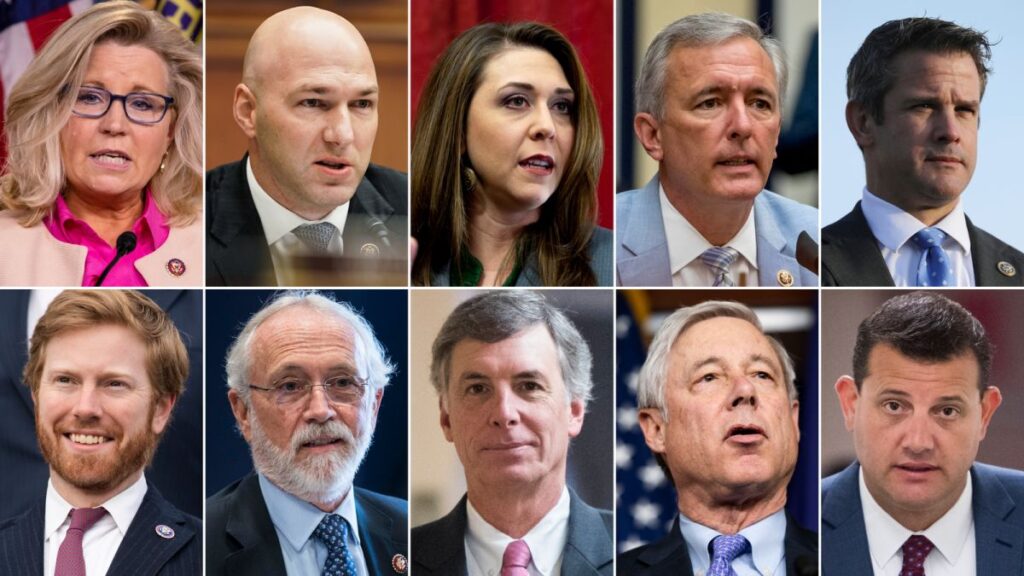The ten U.S. House Republicans who voted for President Trump’s impeachment include Wyoming Congresswoman Liz Cheney, who holds the third-highest position in GOP leadership team.
The other nine Republicans who voted for Trump’s impeachment are Jaime Herrera Beutler (Washington), Anthony Gonzalez (Ohio), John Katko (New York), Adam Kinzinger (Illinois), Peter Meijer (Michigan), Dan Newhouse (Washington), Tom Rice (South Carolina), Fred Upton (Michigan) and David Valadao (California).
Having a few legislators of one party vote with a majority of the other party is quite common. It is usually not a big deal. However, with the nation so stridently divided on partisan and philosophic battle lines, this becomes a noticeably big deal.
They say it was a matter of conscience. Others say there was political calculus. Why they chose to break ranks with the Republican caucus is immaterial. More important is what will now happen to them – or should happen to them.
Districts that President Trump carried by wide margins elected most of these legislators. That could portend political problems for them in 2022 – and probably will. It seems likely that most or all of them may face primary challenges.
On the other hand, there are rumors that two or three of the group are considering retiring after their current terms.
So maybe the ire of their constituents is irrelevant. Kinzinger has made no secret of his desire to run for the Senate – and since he is in a very blue state, the vote may be grounded in his future political ambition.
The first to feel the heat is Cheney. In the unofficial rules of congressional politics, the leadership teams vote together on key issues – and impeachment is a very key issue. Already, the conservatives in the Republican Freedom Caucus are demanding that Cheney either resign or be booted from her leadership post. Right now, the odds are against her holding that position.
Back home, Republican voters are demonstrating outrage against these apostates. Local political parties appear to be moving against future endorsements. They have already thrown around names of challengers.
I will make a wild-a** prediction … that at least half of the tenuous ten will not be serving in Congress after the 2022 midterm election.
So, there ‘tis.
